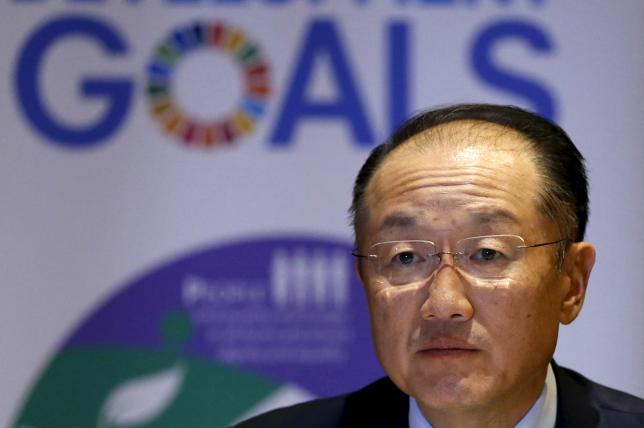
reuters
The head of the World Bank expressed frustration at Lebanon’s political paralysis on Friday during a joint visit with the U.N. Secretary-General, warning that good governance now was essential to prevent future conflict.
Hampered by sectarian tensions, Lebanon has not passed a budget since 2005 and has been without a president for almost two years, preventing vital legislation from being passed.
"A country with no clear priorities and no governance is in trouble and they need to move as quickly as possible," World Bank President Jim Yong Kim said, urging more decisive policy-making to stop the chaos in Syria, now in its sixth year, spreading into Lebanon.
Lebanon, which is hosting just over 1 million registered refugees from the conflict in neighboring Syria, has poor infrastructure and public services.
The World Bank granted Lebanon a $100 million loan on Thursday to support educational projects — on terms normally reserved for the lowest income countries — but an agreed development package from the bank worth nearly $1 billion is being held up by the political deadlock.[nL5N16W4U3]
Kim’s plea was echoed by U.N. Secretary-General Ban Ki-moon.
"As long as the vacancy of presidency persists, national unity and Lebanon’s standing will remain fragile and incomplete," he told a joint news conference in Beirut with Kim.
EU foreign policy head Federica Mogherini, who also visited Lebanon this week, said that Lebanon’s security was important for Europe’s safety too.
Lebanon’s economy grew 8 percent a year between 2007 and 2010, but growth has been relatively sluggish since the collapse of a unity government and the start of Syria’s uprising in 2011. Gross domestic product (GDP) grew at only 2 percent in 2014.
Preventing economic decline now is important to prevent future conflict, Kim said, warning that the United Nations and other international institutions could not be left to pick up the pieces every time crises broke out.
"It is not OK to let countries go down a path of greater and greater fragility, greater and greater risk of conflict, and then when everything goes wrong to throw it at the Secretary-General to solve the problem," he said.
"This is what we have been doing for too long".
(Reporting by Lisa Barrington; Editing by Dominic Evans and Ruth Pitchford)



